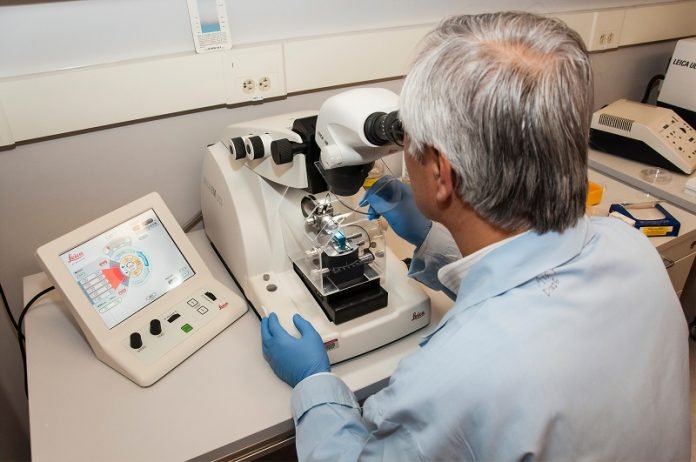
In a new study from the Chinese Academy of Sciences, researchers found the oncometabolite role of progesterone in advanced prostate cancer and strategies to eliminate its oncogenic effect to treat prostate cancer.
Androgen sustains the development of prostate cancer.
Although androgen deprivation therapy and abiraterone eliminate the generation of androgen, disease progression is still inevitable.
This indicates the existence of oncometabolites beyond androgens.
In the current study, the team examined the alteration in the metabolomics of abiraterone-resistant patients and found that one metabolite—progesterone—increased significantly.
Transient treatment with high doses of progesterone will activate multiple pathways to promote the proliferation of cancer cells.
Long-term treatment with progesterone at a low dosage will increase the expression of GATA2.
This will lead to an irreversible alteration in the transcriptome that promotes disease progression.
The researchers also investigated the metabolic pathway of progesterone. They identified the enzyme 3bHSD1 as a potential therapeutic target for eliminating the generation of progesterone.
Specifically, they discovered that biochanin-A, an isoflavone rich in soy and other foods, is a 3bHSD1 inhibitor and suppresses prostate cancer development.
Based on the oncogenic effects of progesterone, plasma progesterone levels were found to be negatively correlated with the duration of abiraterone treatment.
Therefore, progesterone might be a potential predictive biomarker for abiraterone response and related clinical research is in progress.
The findings suggest that biochanin-A inhibits 3bHSD1, thus eliminating the oncogenic effects of progesterone and suppressing the development of prostate cancer.
If you care about prostate cancer, please read studies about vitamin that is particularly important for your cancer prevention, and results showing these two hormones may affect prostate cancer risk.
For more information about prostate cancer, please see recent studies about new method that could help predict prostate cancer growth, and findings of new prostate cancer therapy that could delay cancer growth.
The study was conducted by Zhenfei Li et al., and published in Cell Reports Medicine.



